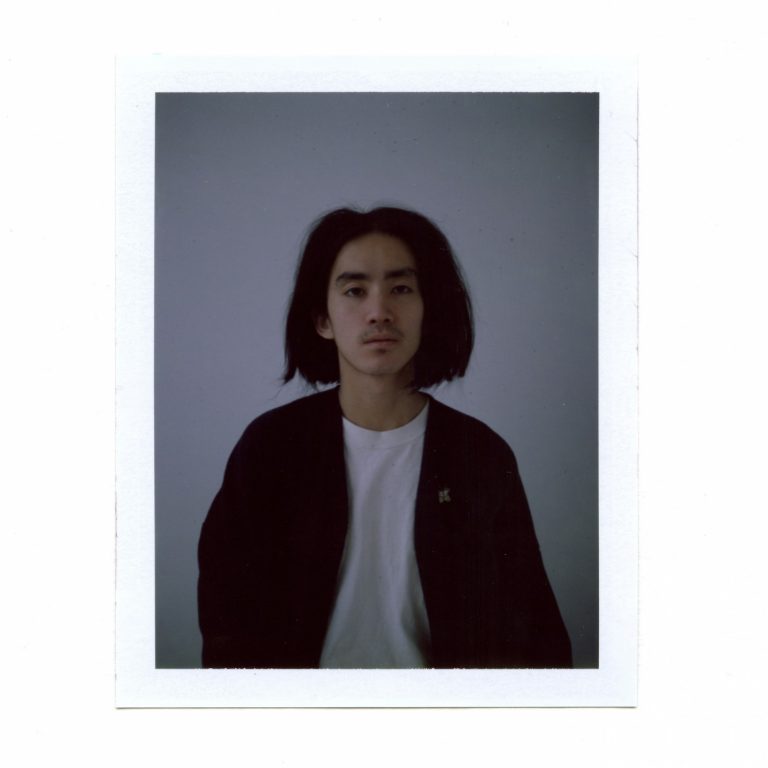In the video for Jonah Yano‘s “shoes” we see personal history being made. The vintage-style camera footage captures the reuniting of Yano and his father, who hadn’t seen each other in 15 years. The two lost direct contact when Yano moved from Hiroshima to Toronto after his parents separated, but in the video for the song we see them both catching up on what occasional phonecalls and mailed birthday gifts can’t replicate. Together they hang out, smoke cigarettes, take in sunsets, jam on instruments, and in a moving final moment, have a long hug goodbye. In a short space of time you’re caught up in this private moment. I shed a little tear upon first viewing of the video, especially as the song itself is also a duet of modern and old – literally in the age difference, but also in that the core of “shoes” was recorded by his father in the 1990s and reworked by Yano for the album.
Yano’s debut album, souvenir, aims to give the track that bit more context. Each song delves into his personal history, telling the story of his parents’ separation and his father’s subsequent absence through the perspective of each of his family members. There’s moments of calm, instances of frustration, and plenty of contemplative pauses as Yano bleeds styles and genres together. On “stones (tokyo)” he’s plucking the strings of his guitar delicately, singing a gentle ballad; while on the album’s emotional centrepiece “strawberry!” he’s lashing out with a distorted voice over splashing drums as he leans into his hip-hop influences. By turns he touches on the pristine stillness of CFCF and vocal manipulations that will recall recent Bon Iver, but Yano makes efforts to make his own statement.
From the first seconds of the album Yano sets the tone appropriately, creating a still of guitar, vibraphone, and keys as he laments, “Poor me, poor you.” There’s a measured sadness in many of the tracks here, but it’s never sappy or needless – instead it’s explorative. On “congratulations you’re in first place” he confesses “Everything you do / it always puts me to the side,” over swirling synth arpeggios and vocal clips that sound like they’ve been recorded in a tunnel. Until the drums come in and make the focus a little sharper, it sounds like Yano is working through something in real time. Elsewhere, on “delicate”, the chattering hi-hats and precision drumming leaves room for thoughtful pauses aplenty as the chorus tumbles gently to its destination.
Sometimes the album wanders a little too far for its own good, and while the theme is still in view, the enjoyment of the listener might be tested. “monarch” drops in some noodling woodwind over repeated utterings of “Who’s that monarch?”, never finding any kind of answer. “what can i do to help” verges on dissonance at times, the sound clipping unpleasantly at moments as guitar strings tremble and wordless voices come and go. It’s a hark back to the more difficult moments on Yano’s nervous EP, but beyond that there’s not a great deal of joy to be taken from the track, nor much to really remember.
Nonetheless, souvenir is a solid start with a clear focus, full of little easter eggs and different layers to be unfurled should you be inclined to dig further. (The recurring mention of George Gershwin’s 1934 classic “Summertime” is particularly appreciated, bringing required meaning to “shimonoseki interlude” and adding to the languid feel of the album.) It’s evident why Yano has garnered attention from his local scene as well as big players like BADBADNOTGOOD.
Indeed when aforementioned “shoes” saunters in as the album’s final track, Yano shows off how well he works with others. The song is a delightful breath of fresh air; the buoyant bass, sweet guitar tones, and mixed vocals delivering charm with every bar. That it comes with the personal history only makes it more worthy of your time; this is Yano both rewriting history while penning his own – and the results are looking promising for the future.

